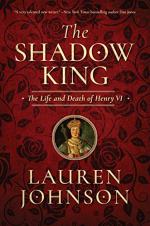|
This section contains 457 words (approx. 2 pages at 400 words per page) |

|
Summary
Johnson characterizes Henry VI's kingship as "unexpected" (553). He was kind-hearted, charitable, and generous, but he was not an exceptional man and he failed to live up to the requirements of medieval kingship. The English could not abide "a ruler who did not rule;" his inertia and willingness to be led by others was a big part of his downfall. However, he is not the fool that he was portrayed to be by Shakespeare. He was well-educated and, despite his mental health struggles, he was not "the 'mad king' of popular memory" (554). Johnson concludes that "Henry's story is fundamentally one of human fallibility and choice" (557).
In Appendix I, Johnson explores the question of where Henry VI died. There is a plaque in the Wakefield Town in the Tower of London indicating the place of his death. However, Johnson demonstrates that this location is...
(read more from the Epilogue - Appendices Summary)
|
This section contains 457 words (approx. 2 pages at 400 words per page) |

|




